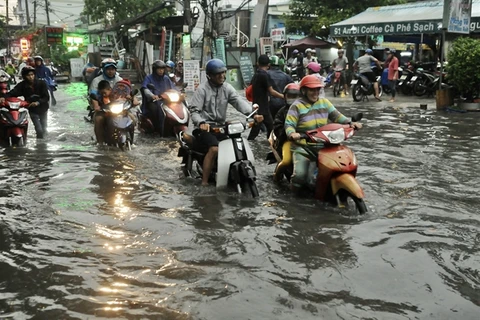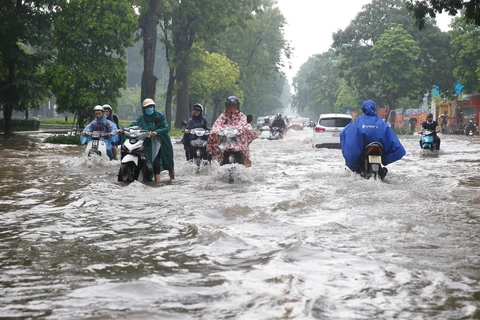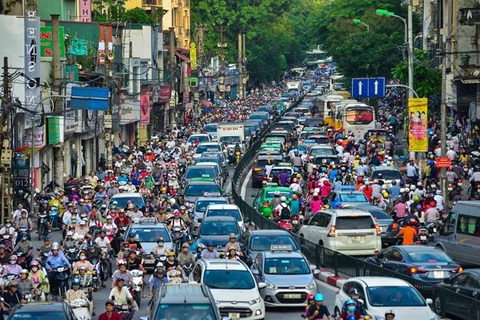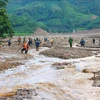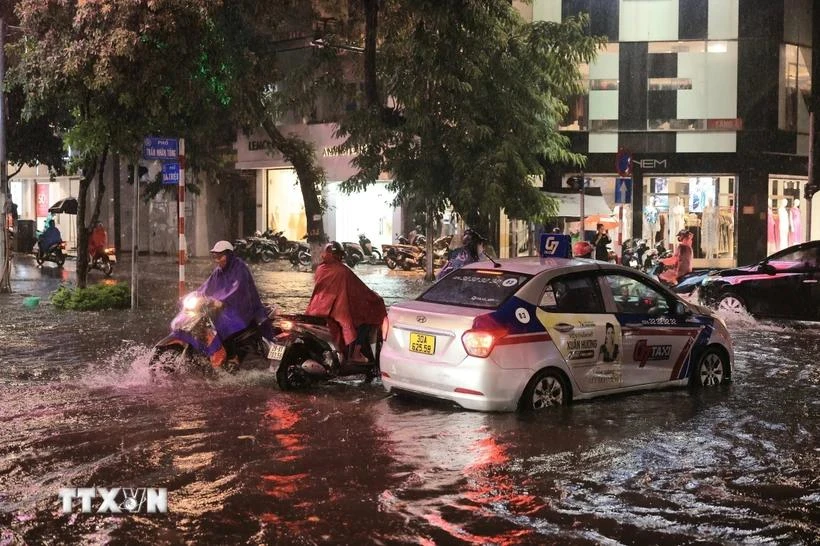
Hanoi (VNA) - To effectively prevent urban flooding, Vietnam needs to develop a comprehensive long-term drainage plan, medium-term implementation strategies, and efficient infrastructure management, according to Norihide Tamoto, an expert of the Japan International Cooperation Agency (JICA).
Since the beginning of 2024, several areas across Vietnam, particularly in Hanoi, have experienced severe flooding due to heavy rainfall. Given the increasingly unpredictable climate conditions, addressing urban flooding in major cities through strategic policy solutions has become an urgent priority, as emphasised by the JICA drainage policy advisor for the Vietnamese Ministry of Construction.
The expert noted that Vietnam and Japan share similarities as both countries have been heavily affected by climate change, with rainfall tending to increase. Therefore, Vietnam could learn from Japan's policies to devise timely and effective urban flood prevention and response strategies.
According to the expert, in Japan, the initial focus of drainage system development was on quickly channeling rainwater out of cities to prevent sanitation problems caused by stagnant water. The Japanese government, including local authorities, is responsible for the construction and management of drainage and wastewater treatment systems, including rainwater drainage, rather than the private sector.
Local administrations own and manage drainage and wastewater treatment infrastructure and are ultimately responsible for their operations, Tamoto explained.
However, the JICA expert also stressed that, to ensure effective urban flood prevention and response, localities in Vietnam must first secure adequate financial resources and establish accounting principles.
In Japan, the funding for rainwater drainage is primarily covered by taxes, he said. Vietnam's future infrastructure needs for rainwater drainage will be significant. It is time for the Southeast Asian nation to discuss how to secure the necessary funding to develop comprehensive drainage infrastructure.
Additionally, Tamoto highlighted the importance of ensuring proper planning and objectives for rainwater drainage. Each province and city need to have its own plan to manage rainwater effectively.
Local authorities in Vietnam may also need a long or a medium-term implementation plan, he said, hoping that the Vietnamese government will amend laws and regulations to provide a basis for creating these plans.
He also recommended that the nation establish councils related to urban drainage, enabling stakeholders to exchange ideas and agree on measures to address flooding damage. Provincial-level people's committees could be well-positioned to take on this council role.
An additional solution is the effective management of infrastructure, he said. The advisor pointed out that infrastructure, designed for long-term use, must be planned, constructed, and managed with a long-term vision. Therefore, Vietnam needs to urgently develop infrastructure that keeps pace with rapid urbanisation and economic growth
According to the Ministry of Natural Resources and Environment, one cause of urban flooding in recent years is the loss of natural lakes and ponds due to urban development. It also pointed out that environmental impact assessments during past urban development was not sufficiently thorough.
Another factor contributing to urban flooding, as defined by the ministry, is the high density of construction, while Vietnam's urban drainage systems remain inconsistent and lack the capacity to handle large volumes of rainwater effectively./.
